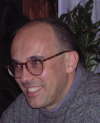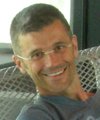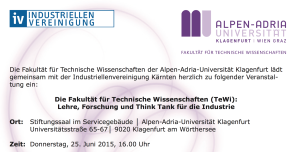Abstract:
Well-studied and commonly used in database query languages, aggregates form an intuitive means of representing knowledge. Since logic programs can be viewed as a database query language, it is natural to consider aggregates also in their context. However, logic programs allow for recursive specifications, which are either disallowed or allowed only in a restricted form in most database query languages. It turns out that aggregates used in connection with recursion raise a number of semantic issues, some of them reminiscent of issues with the semantics of negation, a hot topic in logic programming about three decades ago. One of the semantics for logic programs with negation that emerged and has proved itself to be viable is the stable model semantics or answer set semantics. In this talk we will show how ideas from this semantics can be transferred to programs with aggregates, what issues arise when doing so, and what options there are to overcome these. Furthermore, we will outline properties of the resulting semantics and the availability of system support. Finally, we show that all of these considerations are not really limited to aggregates, but more general constructs, such as those found in HEX programs or description logic programs.
Bio:
Wolfgang Faber serves as Professor of Artificial Intelligence at the University of Huddersfield (UK). Before that, he was a Reader at the same university, an Associate Professor at the University of Calabria (Italy), and an Assistant Professor at the Vienna University of Technology, where he also obtained his PhD in 2002. From 2004 to 2006 he was on an APART grant of the Austrian Academy of Sciences. His general research interests are in knowledge representation, logic programming, nonmonotonic reasoning, planning, and knowledge-based agents. He has published more than 100 refereed articles in major journals, collections and conference proceedings in these areas. He is one of the architects of DLV, a state-of-the-art system for computing answer sets of disjunctive deductive databases, which is used all over the world. He has acted as a chair for several workshops and conferences, and has been on the program committees of many of the major conferences of his research areas, and has served on the editorial board and as a reviewer for many journals and conferences on Artificial Intelligence, Knowledge Representation, and Logic Programming.



 ANDREA M. TONELLO received the laurea in electrical engineering (1996) and the Ph.D in telecommunications (2003) from the University of Padova, Italy. On February 1997, he joined Lucent Technologies where he worked on cellular communications in the Bell Labs Advanced Wireless Technology Laboratory, Whippany, NJ. He was promoted to technical manager in 2002 and appointed managing director of the Bell Labs Italy di- vision. In January 2003, he joined the Uni- versity of Udine, Italy. He became aggregate professor in 2005 and associate professor in 2014. Herein, he founded the Wireless and Power Line Communications Lab and the spin-off company WiTiKee. He was awarded the Italian full professor habilitation in 2013. In September 2014, he became full professor at the University of Klagenfurt, Austria, where he chairs the group on
ANDREA M. TONELLO received the laurea in electrical engineering (1996) and the Ph.D in telecommunications (2003) from the University of Padova, Italy. On February 1997, he joined Lucent Technologies where he worked on cellular communications in the Bell Labs Advanced Wireless Technology Laboratory, Whippany, NJ. He was promoted to technical manager in 2002 and appointed managing director of the Bell Labs Italy di- vision. In January 2003, he joined the Uni- versity of Udine, Italy. He became aggregate professor in 2005 and associate professor in 2014. Herein, he founded the Wireless and Power Line Communications Lab and the spin-off company WiTiKee. He was awarded the Italian full professor habilitation in 2013. In September 2014, he became full professor at the University of Klagenfurt, Austria, where he chairs the group on 
